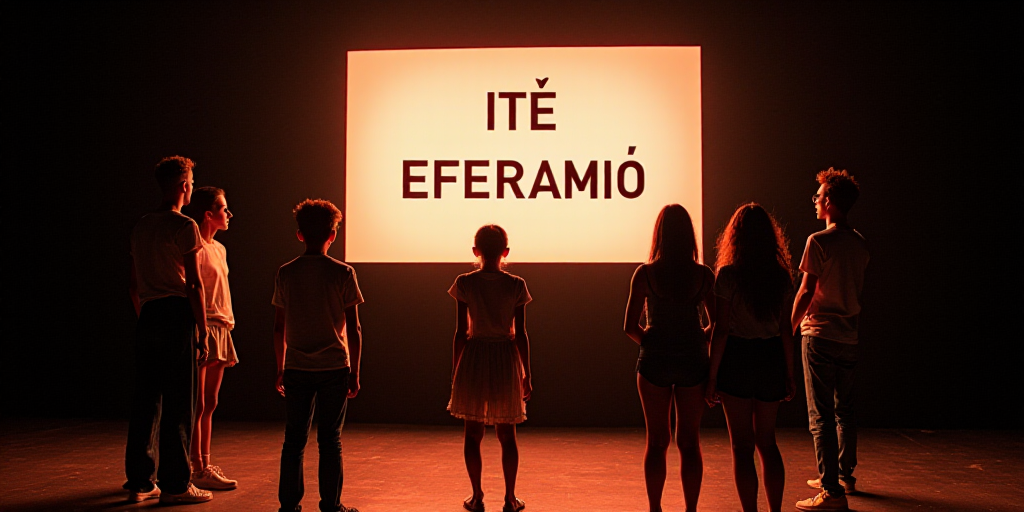Festival’s Return to Guanajuato Capital After Five-Year Absence
After nearly five years of absence due to the marginalization by the previous city administration, the International Film Festival of Guanajuato (GIFF) is set to return to Guanajuato capital, reuniting with iconic venues such as the Teatro Juárez and Teatro Cervantes.
In recent years, GIFF has been one of the most significant film gatherings in the country, always free and exploring various storytelling methods through audiovisual evolution, including virtual reality cinema. The festival has addressed the future of the industry, such as risks in information storage media and film preservation.
Moreover, GIFF adapted during the pandemic by incorporating safe cinema appreciation alternatives amidst health uncertainties, like water-based screenings. It has also been a platform for addressing issues of interest to the audiovisual community, such as the emerging implications of artificial intelligence technologies in 2023.
Over 200 Films in Exhibition
On Tuesday at the Sala 8 of the Mexican National Cinematheque, GIFF director Sarah Hoch, alongside Daniela Alatorre from the Mexican Film Institute (IMCINE) and local authorities, unveiled details about the festival’s programming and its return to Guanajuato capital.
This year’s edition, taking place from July 25 to August 4 in three host cities—Guanajuato capital, San Miguel de Allende, and Irapuato—will once again tackle the pressing issue of AI’s role in filmmaking, now that these tools have permeated all creative processes.
AI and Its Intricacies
During Tuesday’s press conference, Hoch announced that a special showcase of the feature film “La IA, tan estúpida que jamás podrá hacer filmes como los míos” (AI, so stupid it will never make movies like mine) would be one of the festival’s first activities. This film addresses the paradox of AI’s intrusion into cinema, inspired by German filmmaker Werner Herzog’s 2024 statement that forms the film’s title.
Hoch explained, “This is a film created by AI. They programmed it in every possible way to resemble Werner Herzog, using all his interviews, scripts, and videos—obviously his voice. The goal is for the AI to imagine how Herzog’s next film might look with his traditional voice-over.”
Hoch emphasized that the arrival of AI in filmmaking is a “dark, difficult, painful topic.” She stated that they had raised concerns about this issue five years ago, and now, though it’s somewhat late, they’re revisiting the topic. She highlighted the need for a thorough understanding of AI capabilities and what creators can do to safeguard their stories, images, and voices.
Hoch further elaborated that the film’s presentation offers an unprecedented opportunity to spark discussions among all cinema stakeholders, from filmmakers to viewers.
Prominent Figures Share Their Views on AI
Actresses Ana Martín and Rosy Ocampo, along with director Carlos Carrera, who were present at the press conference, shared their opinions on AI in filmmaking.
“AI is beautiful, a toy for those with talent and vision, but it’s not more beautiful than what humans can achieve with their minds. Humans must continue working in cinema. Let humans control AI, not the other way around,” said Ana Martín.
“I’ve been incorporating tools, especially in animation where there are many innovations that simplify technical work. However, so far, AI’s contributions have mainly been rehashes of existing content,” added Carlos Carrera.
“Our team uses AI in a quite systematic and structured way because we aim to be at the forefront without implying human substitution. We want it to provide feedback, making us more efficient, but never replacing human creativity, sensitivity, and experience,” explained Rosy Ocampo.
Daniela Alatorre, IMCINE’s director, stressed that the central concern is copyright regulation. “The most important thing is to have coordination between institutions, a common space for conversations on which aspects should be legislated and how other laws must align. We need to move towards coordinated regulation; for example, cinema legislation cannot exist without corresponding copyright law regulations,” she concluded.






